Tips from Vancouver’s popular Vagina Coach on your pelvic health

Kim Vopni: The Vagina Coach
After two c-sections, general knowledge would have me believe my vagina is in good shape. I shouldn’t suffer any of the incontinence, pain or discomfort often associated with vaginal birth. It turns out that’s one of many postpartum myths. Because, a few months ago, the Vagina Coach, Kim Vopni told me, “If you have a vagina, you should see a pelvic health physiotherapist.” It’s shocking to be in my late 30s and just learning now about one of the most important muscles in my body. My conversation with Kim felt a bit revolutionary. The information she shared opened a pandora’s box of ways I can improve my health and lifestyle, inside and out.
Why do I need a pelvic health Physiotherapist?
What is my pelvic floor anyway?
“The pelvic floor is part of the body that can be a bit taboo, or sometimes associated with shame or trauma,” she explained. “We haven’t been given adequate education on the importance of that group of muscles. They’re responsible for sexual response, organ support, carrying our babies, maintaining our continence and more. They play a role in pelvic and spinal stability. The pelvic floor muscles are integral to the function of everything in the body but it’s not until there’s a problem that we appreciate their importance.”
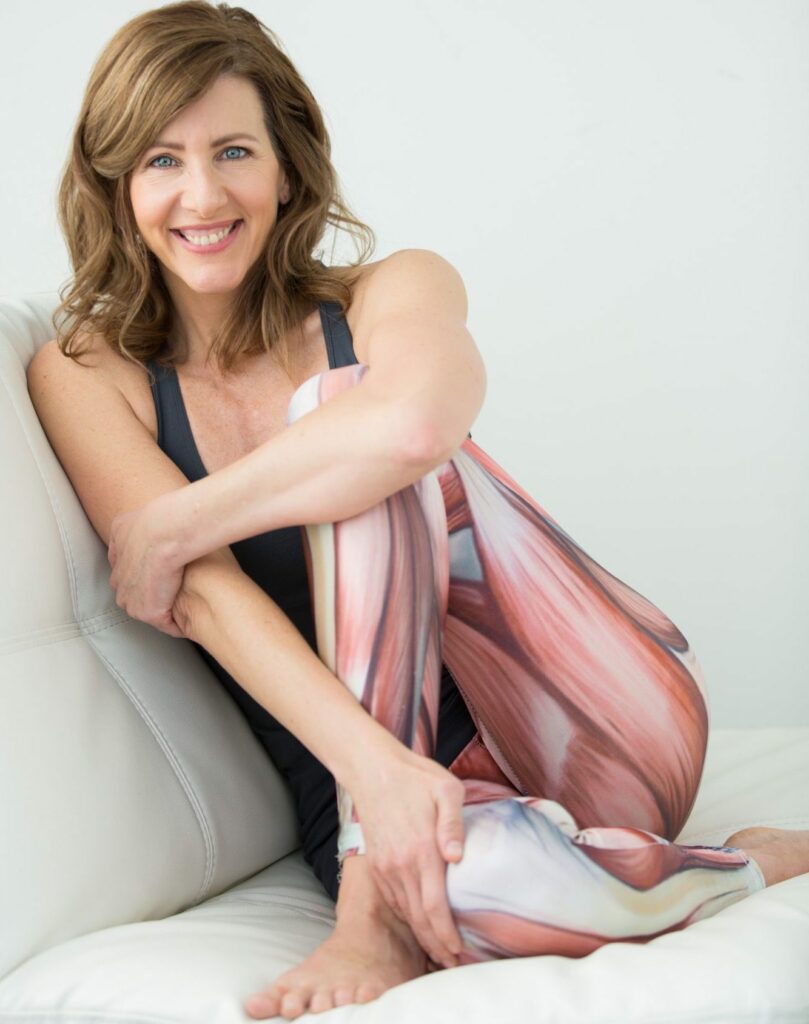
Your pelvic health is important
Kim began her career as a personal trainer then learned through her own pregnancy and birth experiences, the value of healthy pelvic floor muscles. She says women are unaware of the help available and therefore not seeking it out. “On average women wait 6.5 to 7 years to talk to someone,” explains Kim. “Whether it’s pain with sex, leaking, lack of organ support, low back or tailbone pain, the pelvic floor plays a huge role in your quality of life. Many women are embarrassed or think discomfort is normal after having babies or getting older. There’s so much we can do, without surgery. It’s about normalizing the conversation and empowering women to find support.”
Pelvic floor physiotherapist
Kim recommends a pelvic floor physiotherapist as the first stop. I visited one and was amazed at the educational piece, and also the holistic approach to the appointment. It was an hour long and my therapist discussed several aspects of my general health from posture to sleep; very different to a seven minute doctor’s appointment.
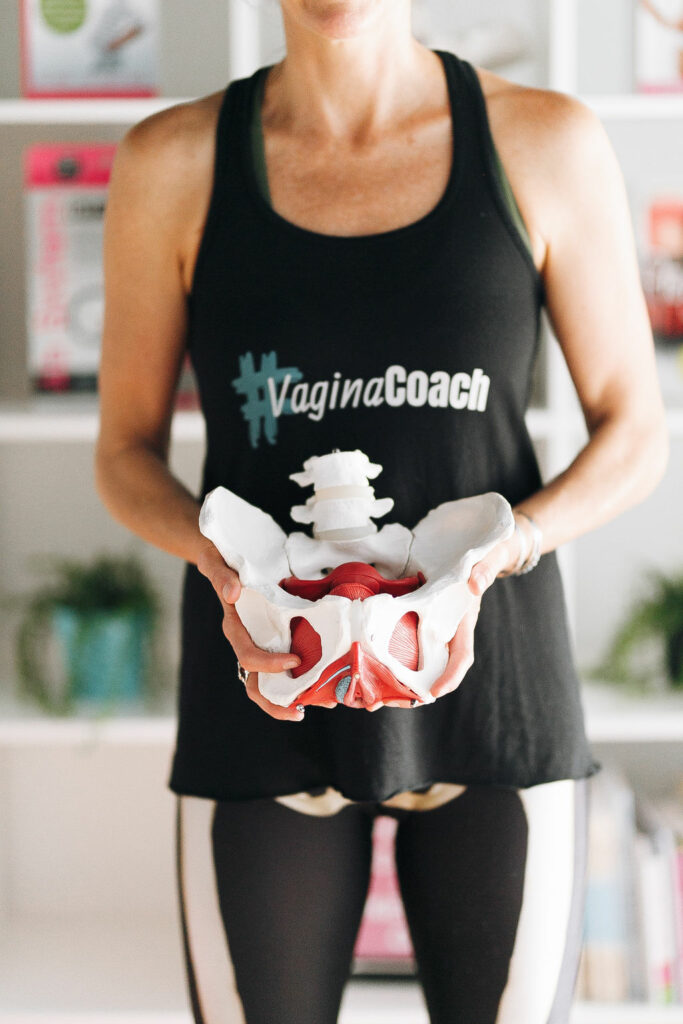
Kegel and Pelvic Floor Exercises
Most people have heard the term Kegel, especially in pregnancy. A Kegel is a clench-and-release exercise that strengthens the muscles of your pelvic floor. Kim believes Kegels should be taught much earlier, at the time we learn about sexual education and menstruation. “50% of women do Kegels incorrectly. There’s a huge gap in education around our bodies from a young age.”
As the pelvic floor isn’t an area of the body that’s easily visible, a correct Kegel exercise relies on visualization and focus, initially at least. The movement of the pelvic floor is a contract, lift and let go movement. When coordinated with breath, the movement becomes easier. You can imagine picking a blueberry up with your vagina or if comfortable, using your own finger and giving it a ‘hug’ and letting go. Kim’s role in pelvic floor health takes the Kegel one step further, incorporating the exercise into movement. This makes sense as few symptoms of weakness such as back pain, prolapse or incontinence occur when the body is static.
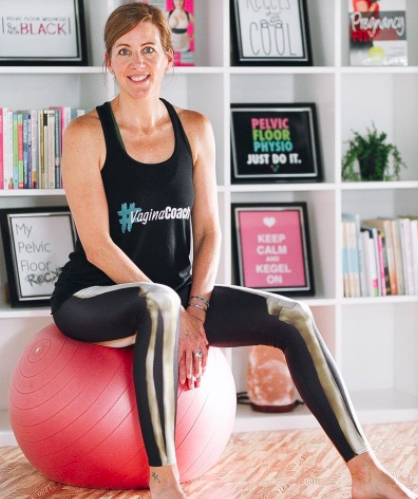
After a diagnosis and possible treatment from a pelvic floor physiotherapist, Kim works with women to strengthen and maintain pelvic floor health through movement. Her focus is fitness, lifestyle and longevity. She teaches the effect diet, exercise and habits like always peeing before you leave the house have on your pelvic floor. Her recommendation is to visit a physio initially but it’s not mandatory to begin work on pelvic floor health.
Buff Muff- the Vagina Coach app
For those like me, new to the idea of pelvic floor health, there’s the Vagina Coach app, the Buff Muff. The app offers free information on Pelvic Health 101, fitness and workouts, resources, guest experts on nutrition and peri-menopause and 28 day challenges. You can track symptoms, progress, and workouts.
“Many post partum women are afraid to workout because it might make their symptoms worse,” Kim explains. “I want to demonstrate the benefits from exercise, strength training or weights and encourage women to do it in a way that supports their body and improves their symptoms.”
The app also explores hypopressive exercises, a movement technique to activate the involuntary fibers within your pelvic floor as well as your ab muscles.
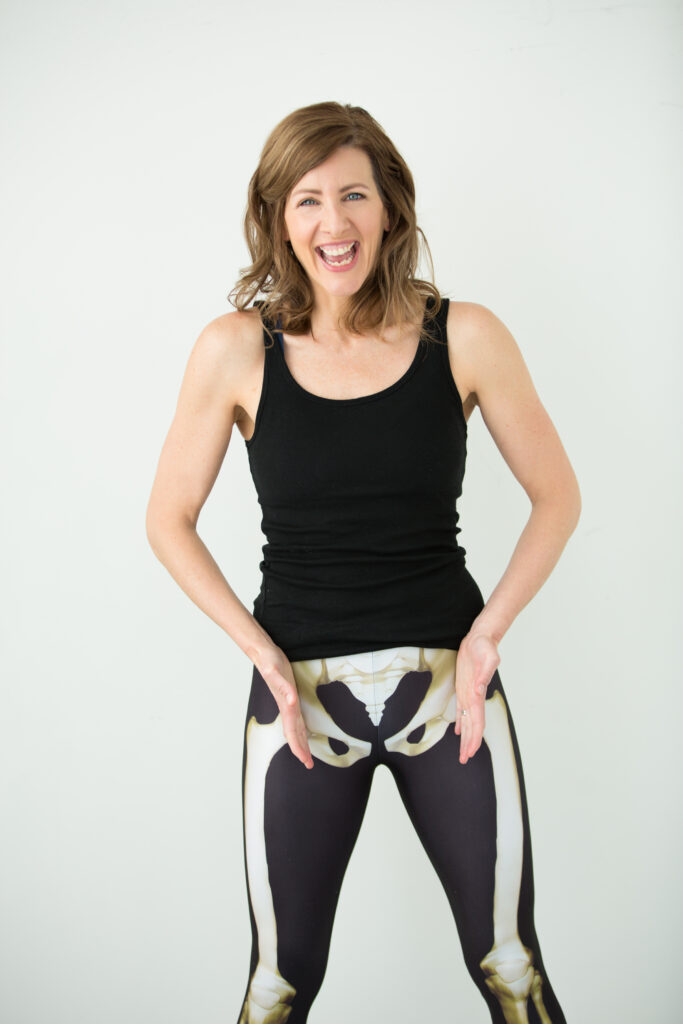
Beyond kegels
Pelvic floor health is more than Kegels, it’s a lifestyle. A strong pelvic floor will compliment hormone balance throughout mid life as it regulates stress response and manages cortisol. The muscle plays a vital role in a holistic health plan. “We have to get the inside working to get the outside working,” explains Kim. “So much of fitness focuses on the glamour muscles but if the inside system isn’t in shape, you’re never going to see the results on the outside.” This comment speaks to many c-section moms looking to work on the “shelf” above their scar.
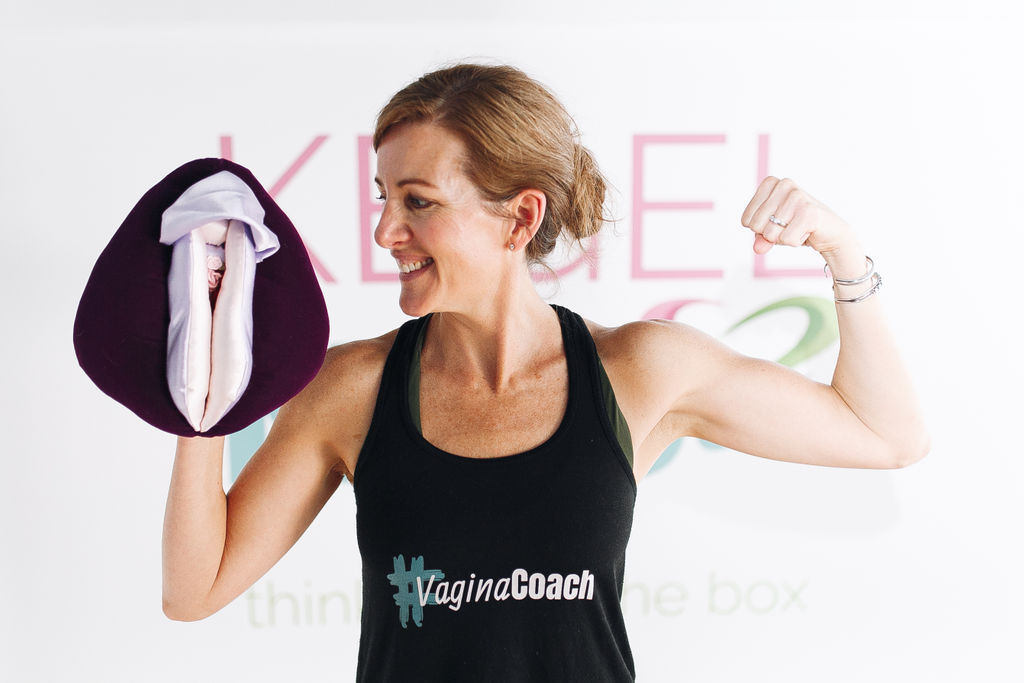
It’s never too late to start
Kim assured me it’s never too late to start. Women at any age, in any stage, birthing mothers or not, can benefit from pelvic floor exercise and strengthening internally. I wish I’d learned about this major part of my body sooner, but I didn’t. I’m making up for lost time – good thing Kegels are invisible.
Learn more about Kim and the Buff Muff app.
Find a pelvic health physiotherapist near you
In Canada we don’t need a referral and pelvic floor physiotherapy is covered by many benefits plans. Here’s a list of local recommended pelvic floor physical therapists. A visit to a pelvic health physiotherapist is a great item to include on a baby registry!
>> The Cheerful Pelvis: 501 – 1750 E 10th Avenue, Vancouver
>>Canopy Integrated Health: 49-1233 Lynn Valley Road, North Vancouver
>>Synergy Physio + Pilates: #307-267 West Esplanade Avenue North Vancouver
>>Diane Lee & Associates: #102 – 15303 31 Avenue, South Surrey
>> Full Circle Physiotherapy: Various locations
>> Treloar Physiotherapy Clinic: Two locations on the westside
>> Bodynamics Physiotherapy: 1110 Walalee Dr, Delta
Jenn Wint is a writer, communications strategist and a public relations specialist. She is passionate about storytelling and community. Jenn lives in East Vancouver with her husband, 3yo son and 1yo daughter. You’ll find them hanging around Vancouver’s playgrounds, water parks, coffee shops and anywhere that bakes fresh cookies in-house!


















